Online learning session for LGBTI activists: Effective messaging in times of crisis
During the session, we explored how to frame messages that build a connection using real examples of organisations that have responded thoughtfully and strategically to crises.
We also discussed how to adapt communications to meet the evolving needs of communities, while at the same time staying aligned with a long-term vision.
Check this session out and walk away with ready-to-use tools, adaptable messaging frameworks, and the know-how to handle anything from backlash to unexpected media attention.
The session was prepared by ILGA-Europe communications consultants AJ Venturini (they/them) and Evá Papadakis (he/they).
You might like to check other communications resources from ILGA-Europe:
- Checklist for Your Crisis Communication: https://hub.ilga-europe.org/communications/checklist-for-your-crisis-communication/
- Skills Boost for LGBTI Activists: Media Interview Practice: https://www.youtube.com/watch?v=QvS47iop59c&list=PLGkBSwIwd0qigza5kbrFmS0_80zGgAkbR&index=3
- Skills Boost: Useful communications strategies for LGBTI activists: https://www.youtube.com/watch?v=HDomQzkr3mQ&list=PLGkBSwIwd0qigza5kbrFmS0_80zGgAkbR&index=6
Do you struggle with some specific communications challenge and do not know where to start? Reach out to us, we might be able to help! Contact svetlana@ilga-europe.org.
Skills Boost: Useful communications strategies for LGBTI groups: Take it to the next level

At this session, Simona Mursec from Ljubljana Pride (Slovenia) shared the experience of developing several separate communications strategies for different areas of work and updating them.
We covered:
- Does an organisation need more than one comms strategy, and what to do if the answer is yes?
- How did Ljubljana Pride approach this challenge, and what did they learn?
- Why update a comms strategy and how to do it in a smart way?
Here are our top 9 quotes from this session check them out and see if the recording of the session might be a good match for you!
1. A communications strategy gives us a ready-made answer to requests like “please put this on social media”
“A comms strategy gives us the strategic framework for what we share, which channel is appropriate to share information from other organisations, and how we enhance our own audiences by cooperation with other organisations”.
2. Beware of Consultants bringing their own processes, especially private-sector consultants who mostly work in very different contexts
“I involve people that can support the processes. I am not a big fan of consultants when the role of the consultant is to come in with a model, a theory or their own way of doing things. Because most of the time it will not work for us. We have to develop our own model, approach, thought, commitment, and ownership of it.
I am more of a fan of people who can facilitate a process, who can take time to understand organisational needs rather than coming in with their own way of doing communications. For consultants it can be rather a game, and for us it’s not. This is our life.”
3. Everything comes with experience
“It took us a long time until we were able to invest into an organisational strategy. Once we had the organisational strategy, everything else went much faster, it was much clearer why we needed it, and how we could work with it. We built the muscle for it, then it was easier and less resource-intensive or time-intensive”.
4. Primary and Strategic audiences for Ljubljana Pride
“Our primary target audiences are LGBTI+ young people (15-29), the LGBT+ community in Slovenia, allies of LGBT+ community in Slovenia, allies and LGBT+ activists from abroad and young activists. And our strategic audiences are Slovenian media, LGBT+ influencers, LGBT+ organisations and initiatives and other activists’ organisations and groups.”
5. Sustainable funding is still one of the biggest challenges
“One of the most important resources for an organisation are trained staff members and volunteers. And by trained, I mean people with enough political, content, personal and other kinds of capacities. It takes money to attract, support and train, to build the capacity of your team. ILGA-Europe’s communications grant was the first grant ever we could use to pay comms staff. Most of the time it is a puzzle”.
6. Don’t make your cycles fit funding – decide strategy and then get creative to find funding to fit.
“I never connect organisational development and strategic development to funding. For me, funding is a tool. We decide at our own pace what our work is going to be. We decide what we are going to do, what are our strategic priorities and how we are going to do it, and then we find funding for that”.
7. Strategic choices do not always work in real life
“We spent some time trying to figure out how to use TikTok best. On the one hand, it is a great tool, and we got good outreach and a lot of visibility among young people, which is our target audience. But it also creates a lot of hate. So theoretically we would like to have it as a two-way communications channel. However, it is managed by volunteers and by young people themselves, and we don’t have the capacity to support them enough. So, for many years we have had to keep the comments closed. Strategically it should not be this way. But practically, it is the way it is.”
8. I would love everybody to have a printout on the wall
“I would love everybody who is doing content work to have a printed document on the wall, and once a week to have a glimpse to think how to incorporate our objectives into the work next week. But life doesn’t work like that, and people don’t work like that. So, we review strategies periodically, every three months. And if you do it this way, you can still clean up and make sure that nothing is forgotten. If you do it once a year, you probably have a problem”.
9. We often don’t have a choice to communicate or not – so we should structure it
“You might be an organisation that works more with internal audiences. You might not be as publicly politically exposed, but you almost certainly still need to communicate. We cannot escape it, we can still be dragged into because of the very hostile environment. So, we prefer to invest and to be more strategic and structured, so we know how to capitalise on it, how to respond, and how to build public pressure”.
You might like to check out some of our other communications resources:
- Useful communications for LGBTI activists: (Skills Boost recording): Click here
- Communications Strategies for Small Organisations (The ILGA-Europe Hub): Click here
- 9 Steps to a Good Communications Plan (The ILGA-Europe Hub): Click here
Do you struggle with some specific communications challenge, and do not know where to start? Reach out to us, we might be able to help! Contact svetlana@ilga-europe.org
Skills Boost: Get the most from digital ads
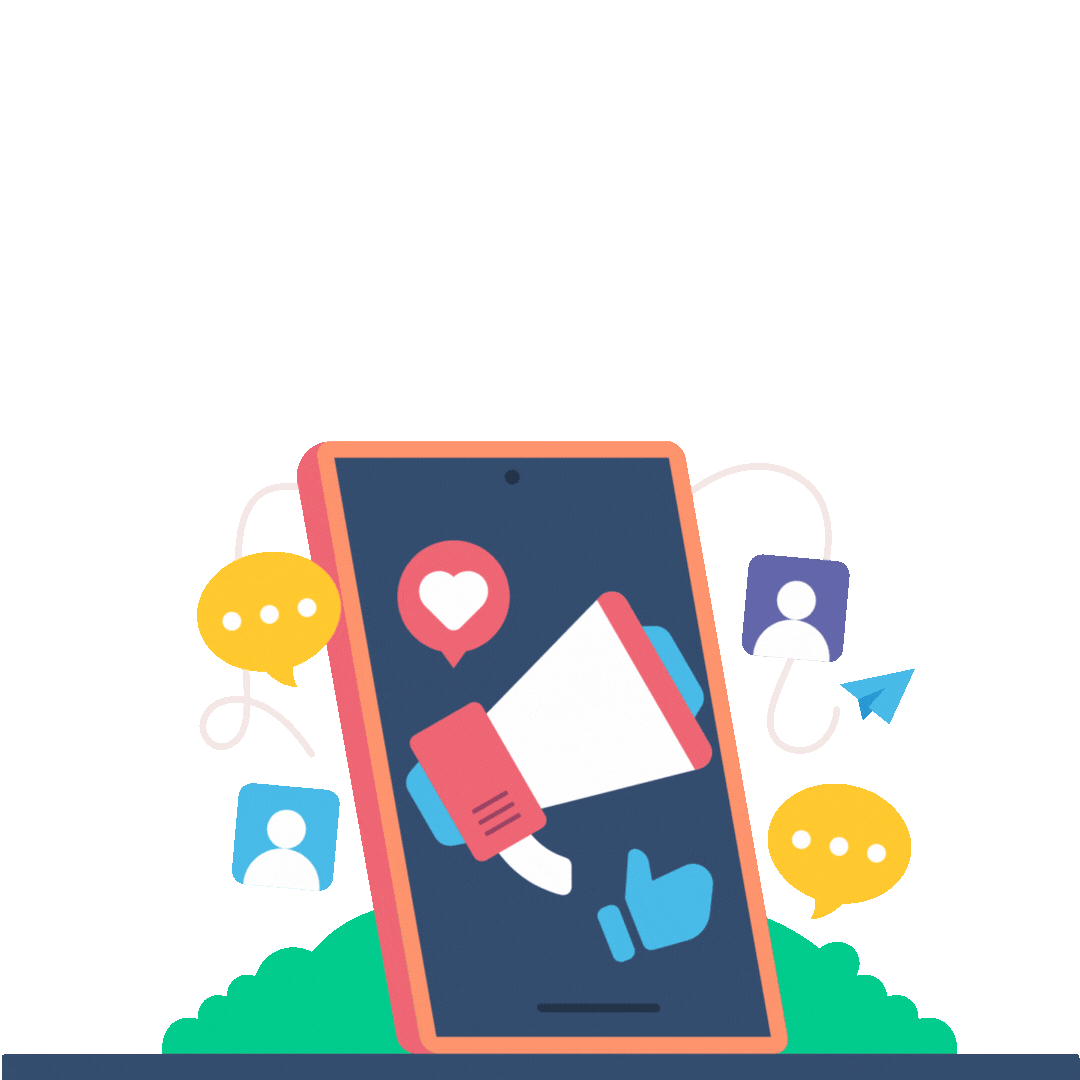
Digital consultant Jean O’Brien who specialises in nonprofits and activism covered:
- Various channels for paid digital ads – what are their strengths and weaknesses and how to decide where to go.
- Focus on Meta ads (Facebook & Instagram): how they work, and how to get the best out of them.
- The best low-budget campaigns. What to do and where to start. What are the zero budget options?
- What to do if your ads are constantly rejected (for example for being ‘political’).
You might want to check other comms resources by ILGA Europe:
- Digital advertising for LGBTI activists: What we learned at the latest ILGA-Europe Skills Boost (ILGA-Europe blog post): https://www.ilga-europe.org/blog/digital-advertising-for-lgbti-activists-what-we-learned-at-the-latest-ilga-europe-skills-boost/
- From numbers to stories: How LGBTI activists can use data visualization (Ilga-europe blog post): https://www.ilga-europe.org/blog/lgbti-activists-data-visualisation/
- ILGA-Europe Guide to Meta Ads (written and designed by Jean O’Brien of Digital Charity Lab: https://www.ilga-europe.org/files/uploads/2024/11/2024-ILGA-Europe-Meta-Ads-Guide.pdf
Do you struggle with some specific communications challenge, and do not know where to start? Reach out to us, we might be able to help! Contact svetlana@ilga-europe.org
Skills Boost: Useful communications strategies for LGBTI activists
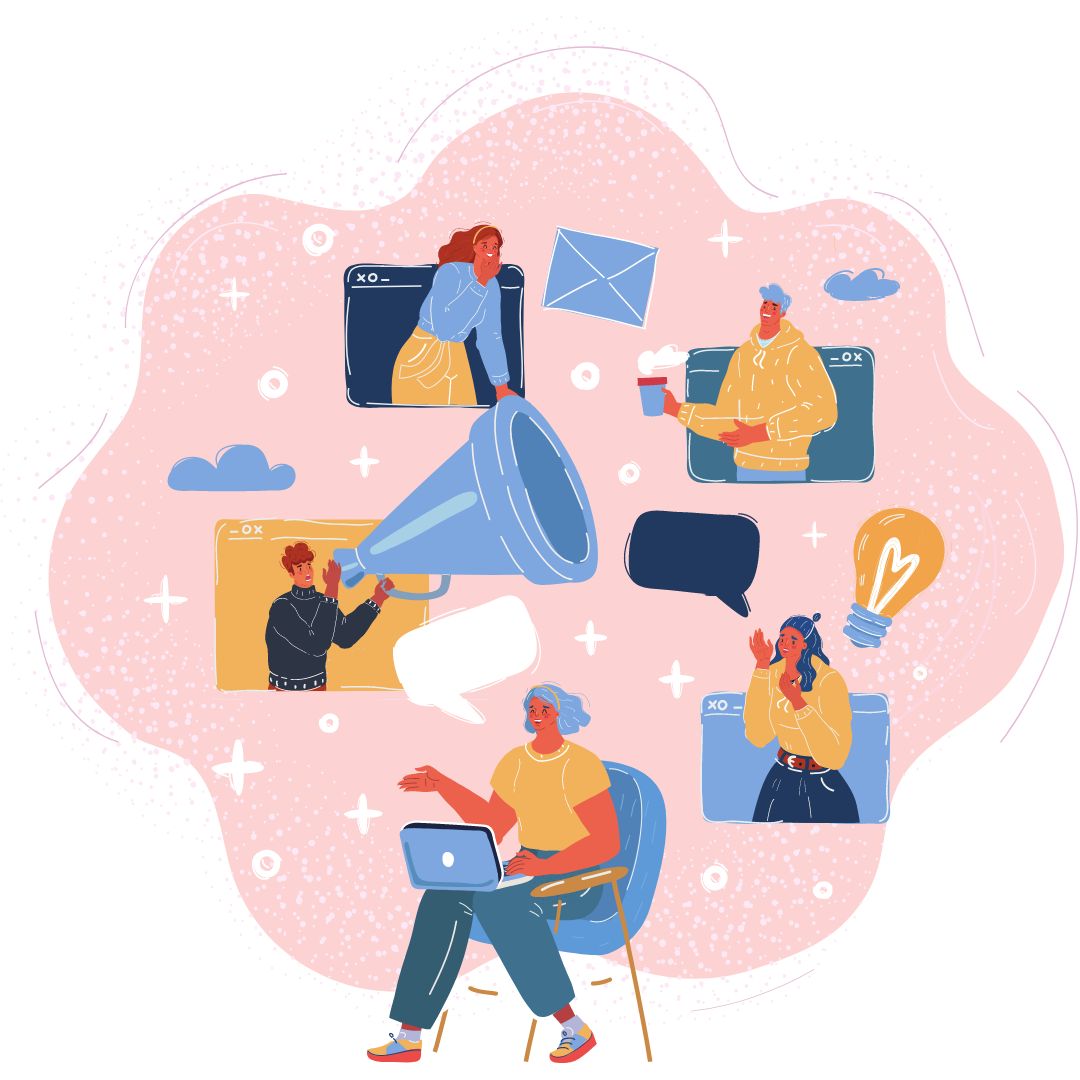
We covered:
- What is a communications strategy? (and how is it different from ‘strategic communications’?) What is the point of it?
- What is the minimum that any communications strategy should cover, and what is the menu of options if one wants to be a bit more ambitious?
- Hearing from two LGBTI organisations who have gone through a communications strategy process recently – and what they learned from their experience. Check the experience of the Newcomers project (Sweden) and Transakcija (Slovenia)!
You might want to check other comms resources by ILGA Europe:
- 9 Steps to a Good Communications Plan (Hub card):https://hub.ilga-europe.org/communications/9-steps-to-a-good-communications-plan/ know where to start? Reach out to us, we might be able to help! Contact svetlana@ilga-europe.org.
- Useful communications for LGBTI-activists: take it to a new level (SkillsBoost recording): https://www.youtube.com/watch?v=YX3U-4KG5xY
- to be published Communications Strategies for Small Organisations (a Hub card): https://hub.ilga-europe.org/communications/communications-strategies-for-small-organisations/
Do you struggle with some specific communications challenge, and do not know where to start? Reach out to us, we might be able to help! Contact svetlana@ilga-europe.org
Skills Boost: How to avoid instrumentalisation and communicate without playing into polarisation?
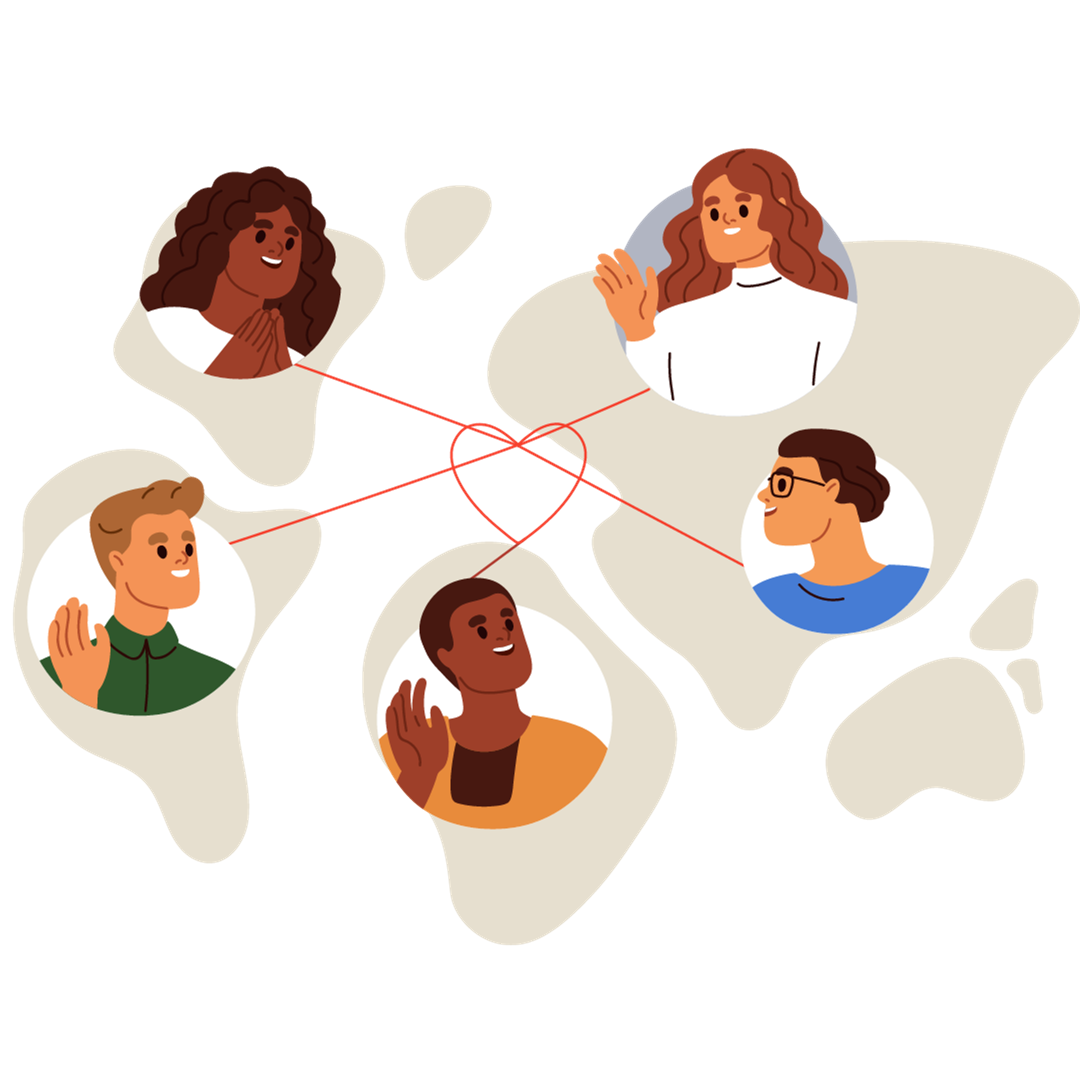
All over Europe and Central Asia, LGBTI people are used by different political players to gain power. Our opponents create and feed harmful and dangerous narratives about us and our struggles. Is it possible to communicate with our target audiences without playing their rules and not feeding into their narratives?
To explore this topic, we invited three amazing activists to talk about their experiences. You can get the insights about the strategies used in Hungary, where Háttér Society used the so-called “anti-LGBT Referendum” to talk to their allies and in Spain, where La Intersession successfully campaigned for the rights of trans people and even prepared a guide: How we can change trans narratives collectively.
Speakers:
- Alberto Abellán, La intersección, Spain
- Javier Vaquero, La intersección, Spain
- Luca Dudits, Háttér Society, Hungary
Skills Boost: Media interview practice
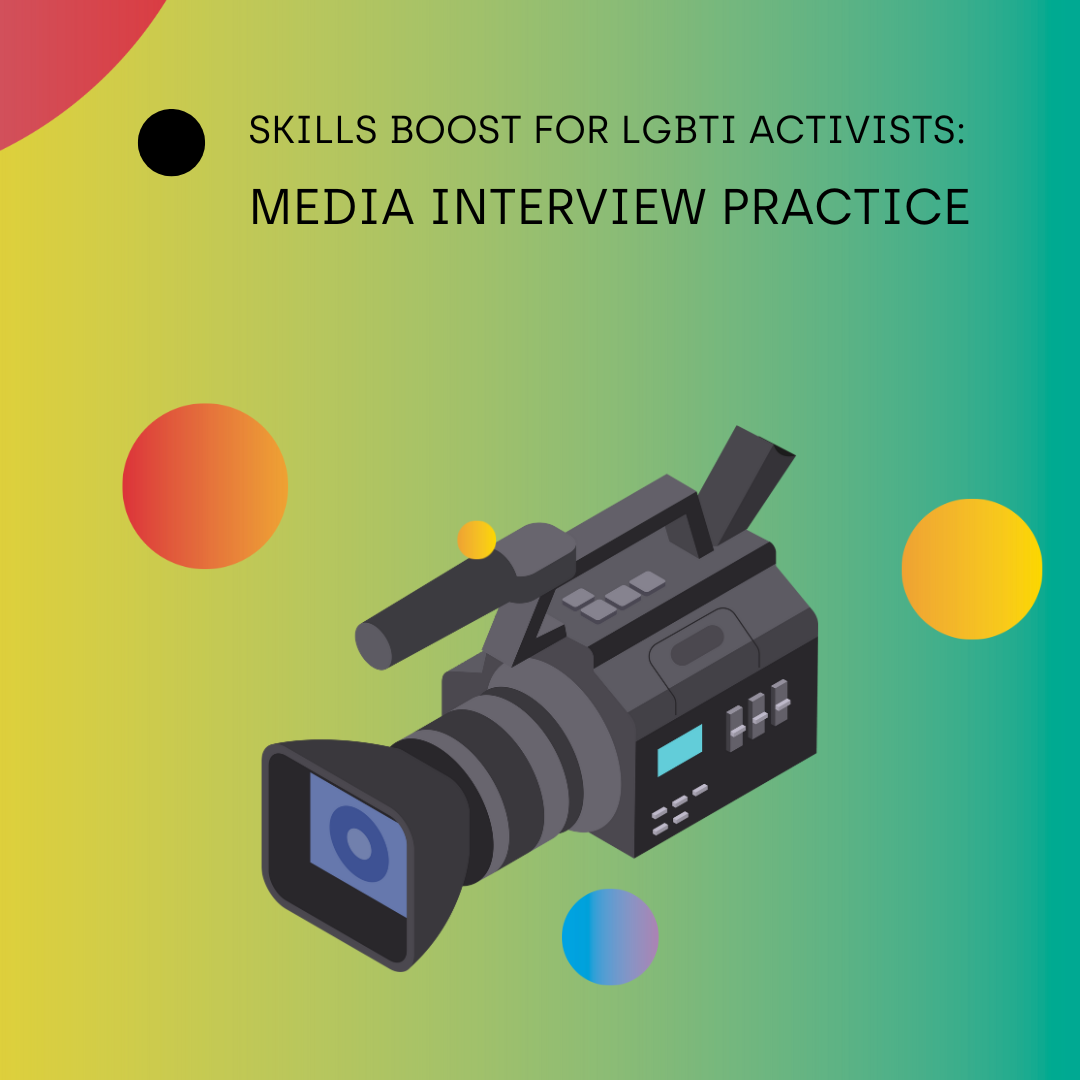
Are you nervous about how to get your message across in TV interviews, or even whether you should accept the interview in the first place?
On September 5, 2023, we held a Skills Boost session specifically designed for LGBTI activists to prepare for and be more confident in their media appearances. This beginner-friendly session focuses on TV interviews (although most of the learning is suitable for other public spokesperson scenarios), with examples and testimonies from LGBTI activists.
We covered:
- The strategy behind participating (or not) in TV interviews and preparing effective messaging.
- Technical tips on different types of TV interviews (live, pre-recorded, studio, online, etc) and what you might need to do differently.
- Dealing with difficult questions, and taking care of yourself/colleagues’ wellbeing.
- Those who did the preparation assignment had chance to face a personalized practice interview in a follow-up session.
You might want to check other comms resources by ILGA Europe:
- How to Build Strong Media Relationships (a Hub card): https://hub.ilga-europe.org/communications/how-to-build-strong-media-relationships/
- Skills Boost on Media Relations for LGBTI Activists: https://www.youtube.com/watch?v=sX85hEKUWOw
- LGBTI Activism 101: Connecting with the Media (a blog post): https://www.ilga-europe.org/blog/lgbti-activism-101-connecting-with-the-media/
Do you struggle with some specific communications challenge, and do not know where to start? Reach out to us, we might be able to help! Contact svetlana@ilga-europe.org
Skills Boost: Data visualisation for LGBTI communication
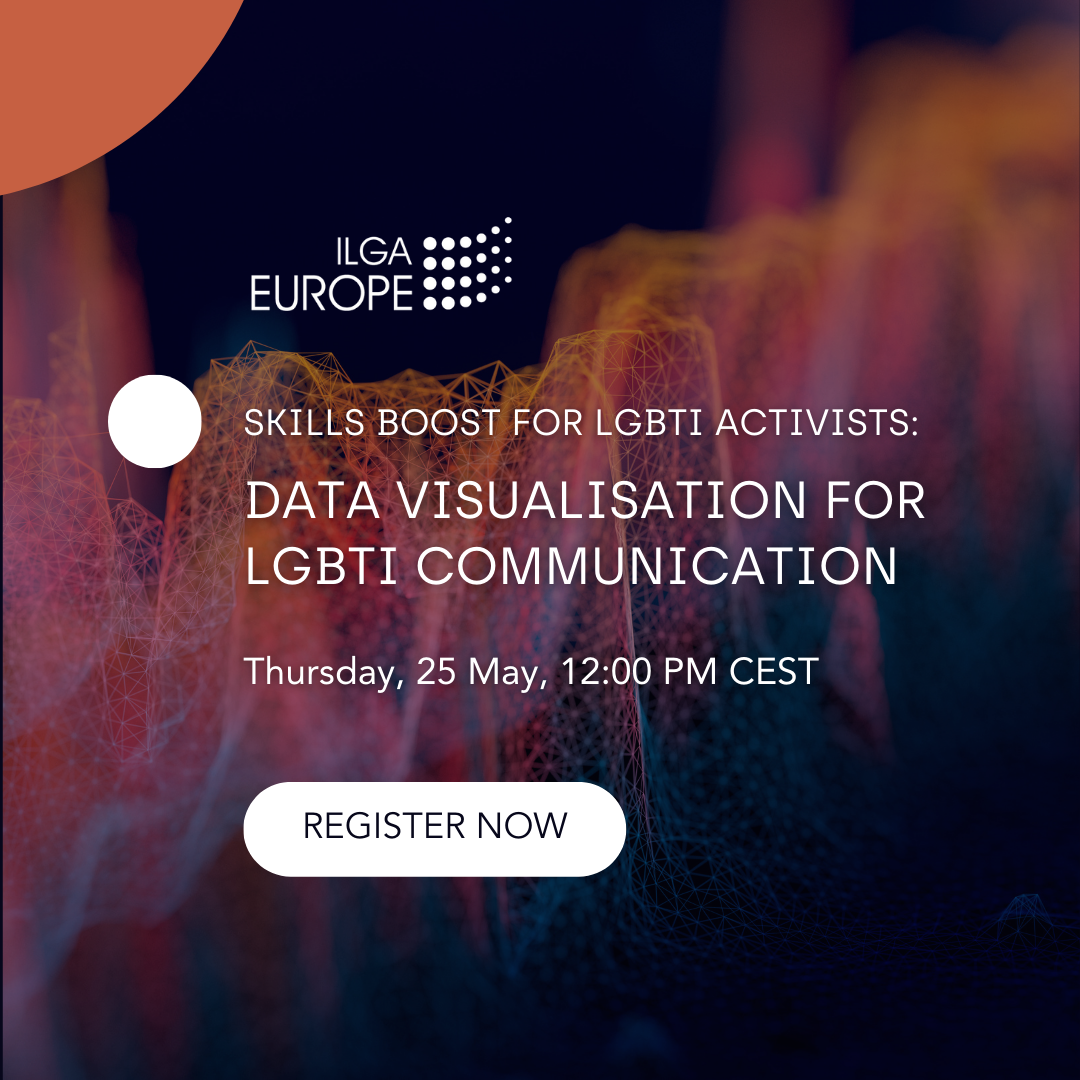
In today’s visually-driven world, communicating with images is more important than ever. That’s why LGBTI activists are seeking ways to transform complex figures and dry data into visual representations that tell a captivating story.
To support them in their mission, in May 2023, we hosted a Skills Boost session focused on data visualisation.
We covered:
- Where to get inspiration and how to find a story relevant to your work among the data?
- How ILGA-Europe approach data visualisation by example of 2023 Rainbow Map & Index.
- A step-by-step demonstration of how to create a graphic using the free design tool Canva.
- Where to get templates?
You might want to check other comms resources by ILGA Europe:
- From numbers to stories: How LGBTI activists can use data visualisation (ILGA-Europe blog post): https://www.ilga-europe.org/blog/lgbti-activists-data-visualisation/
- Digital advertising for LGBTI activists: What we learned at the latest ILGA-Europe Skills Boost (ILGA-Europe blog post): https://www.ilga-europe.org/blog/digital-advertising-for-lgbti-activists-what-we-learned-at-the-latest-ilga-europe-skills-boost/
- 5 Proactive Communications Steps for Small Organisations (a Hub card): https://hub.ilga-europe.org/communications/5-proactive-communications-steps-for-small-organisations/
Do you struggle with some specific communications challenge, and do not know where to start? Reach out to us, we might be able to help! Contact svetlana@ilga-europe.org
Skills boost: Effective fundraising campaigns in times of crisis
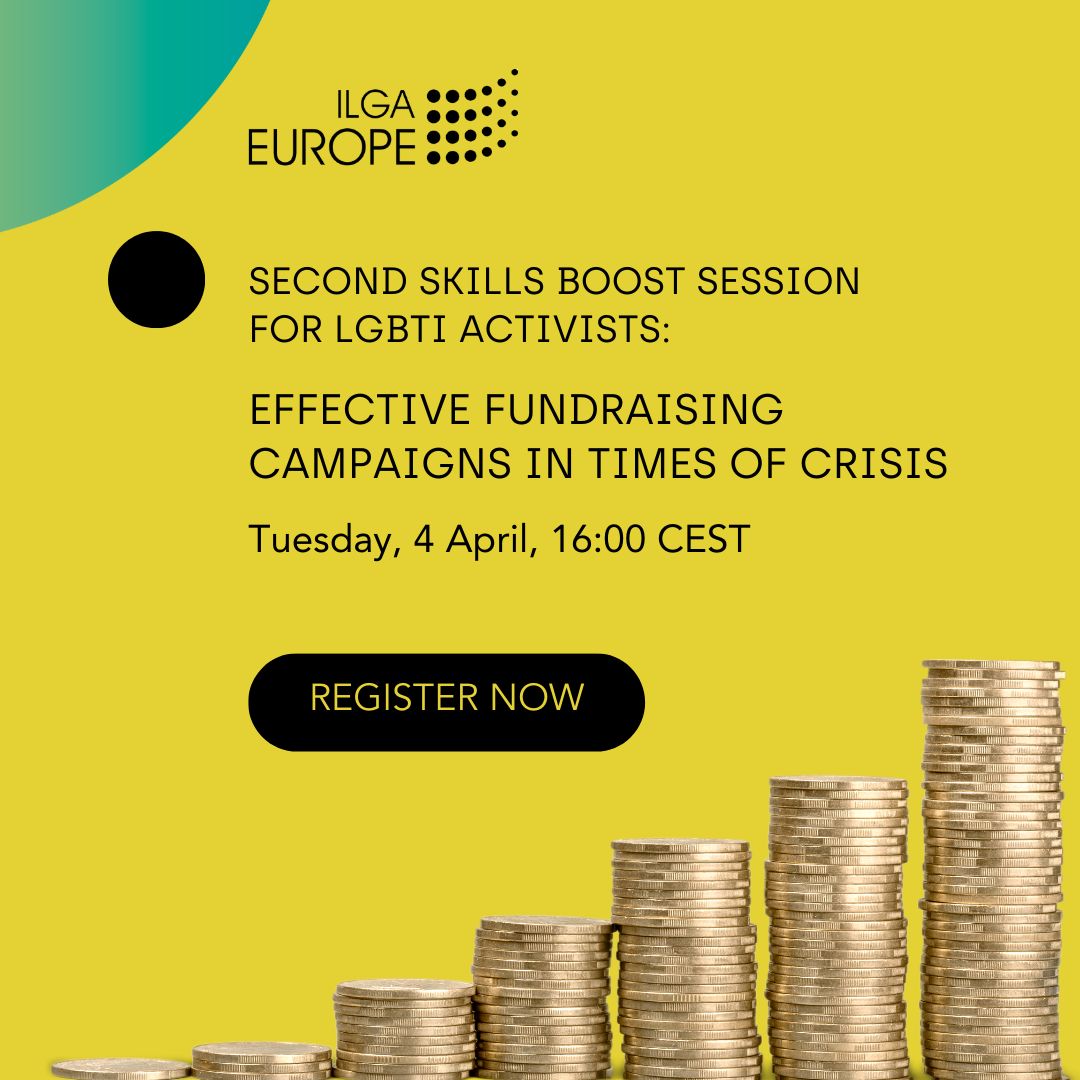
LGBTI organisations face a lack of resources, particularly funding that can be used for flexible needs. One of the ways to tackle this is to start (or to boost) your own fundraising campaign. At this Skills Boost session, ILGA-Europe’s Partnerships Manager, Anna Shepherd provided some tips and advice on where to start, and walked participants through good practices for effective fundraising campaigns targeted at individual donors.
We covered:
- What are the first steps of individual donor fundraising?
- The power of the story you are telling.
- Clear and direct ask as the core.
- Testing messages.
You might want to check other comms resources by ILGA Europe:
- Four questions to ask yourself before launching a crisis fundraising campaign (a blog post): https://www.ilga-europe.org/blog/four-questions-to-ask-yourself-before-launching-a-crisis-fundraising-campaign/
- LGBTI Fundraising Campaigns 101: The 5 crucial elements to raise funds effectively (a blog post): https://www.ilga-europe.org/blog/lgbti-fundraising-campaigns-101/
- It Shows that People Care’, ILGA-Europe’s guide to individual donor fundraising: https://www.ilga-europe.org/report/it-shows-that-people-care/
- Several cards on ILGA-Europe resource hub on different aspect of fundraising: https://hub.ilga-europe.org/fundraising/
Do you struggle with some specific communications challenge, and do not know where to start? Reach out to us, we might be able to help! Contact svetlana@ilga-europe.org
Our Latest Call for Project Applications: Video Explanations

What kinds of organisations can apply?
What do we mean when we say ‘racialised’?
What types of work can you apply for support for?
What happens when you are part of the programme?
Any more questions?
If you have any questions in the preparation of your project proposal please submit them via e-mail to grants@ilga-europe.org
We will answer all of your questions via e-mail and then publish answers on https://www.ilga-europe.org/news/no-one-left-behind/ on 27 February and on 23 March, in order to share the information among all applicants.
The closing deadline is 2 April 2023, Sunday, 23:59 CEST.
Watch: LGBTI rights in Europe & Central Asia in 2022

Watch the video!
In 2022, with the dawn of the COVID-19 pandemic, the world changed forever. Watch our seven-minute video to see how it all led to new developments for LGBTI communities across the year in the regions ILGA-Europe works with and for.
Be part of the change!
Donate whatever you can to ILGA-Europe now, so we can continue support the activism that’s so desperately needed at this time, to secure and fight against a the backlash on LGBTI rights in Europe and Central Asia!